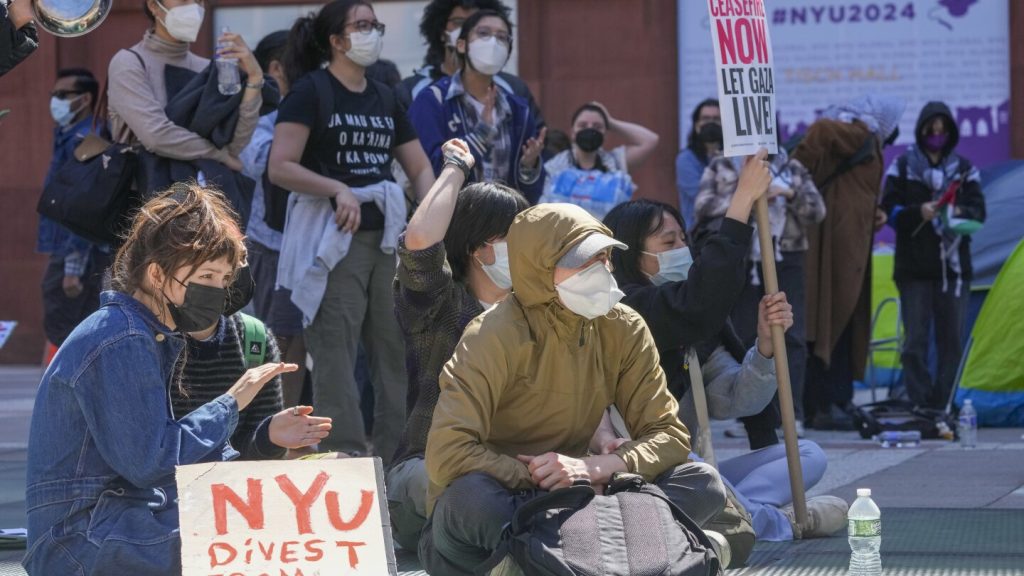NYU students who participated in pro-Palestinian protests this spring are facing disciplinary action, including being assigned a 49-page workbook that includes a “Simpsons”-based module on ethical decision-making. Some students have been asked to write a reflection paper apologizing for their actions during the protests and submit it in a specific font. The protests at NYU were in response to Israel’s actions following the Oct. 7 Hamas attack. More than 100 students were arrested at an encampment on April 22, with about a dozen more arrested at a smaller encampment on May 3.
Although NYU’s school year has ended, some student protesters are still required to go through a disciplinary process that involves answering questions about their values and whether their decisions aligned with those values in a reflection paper. Others have to complete the 49-page “Ethos Integrity Series” which asks students to rank their values and write about how these values affect their daily lives and decisions. One section of the workbook is based on a “Simpsons” episode involving ethical decision-making by Lisa Simpson and Principal Skinner.
A group at NYU called Faculty & Staff for Justice in Palestine has criticized the assignments, with Associate Professor Sara Pursley noting that students completing the reflection paper are instructed not to justify their actions or challenge any conduct regulations. This restriction prevents students from discussing personal values that may be relevant to the situation, such as a belief in freedom of expression or the responsibility to oppose genocide. NYU spokesperson John Beckman defended the disciplinary process, stating that the goal is for students to reflect on how their values impact the university community.
Beckman acknowledged that the specific assignments for the reflection papers may need improvement and mentioned that faculty members and staff from NYU’s Office of Student Conduct will meet in the fall to discuss ways to enhance the quality of the prompts for the reflection papers and other educational assignments. The university views the disciplinary process as educational, with the intention of helping students understand the impact of their actions on the community. While there has been criticism of the assignments from some faculty members, NYU maintains that the process is designed to encourage ethical decision-making and reflection among students involved in protests.


